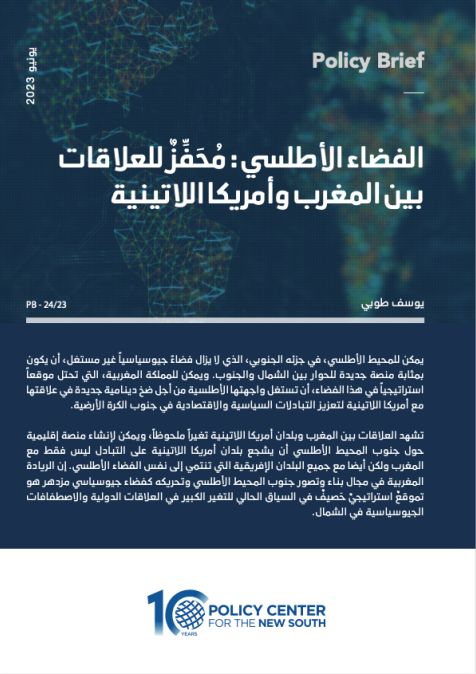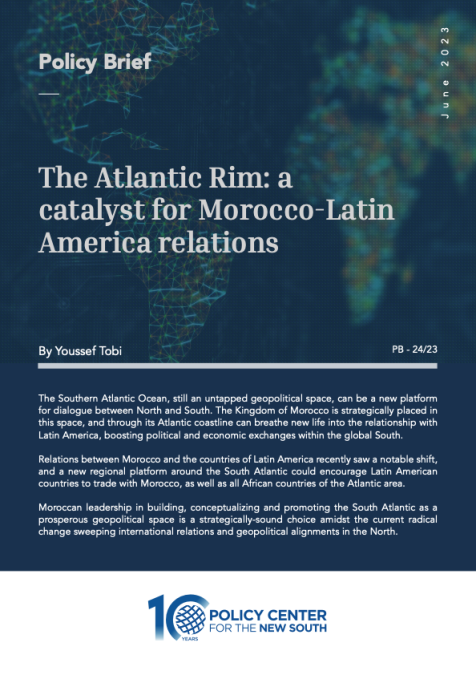Publications /
Opinion
The cruise speed with which Latin American economies are starting 2018 will be constrained by low investments and weak productivity growth in the recent past. Positive global economic prospects, the regional cyclical recovery, and policy initiatives to lift productivity are presenting Latin America’s leaders the opportunity to improve that trajectory. Nevertheless, political risks loom ahead.
Latin America at a cruise speed…
Most Latin American economies enter 2018 at a cruise speed. Last year the region featured the first positive GDP growth rate since 2014, mainly reflecting recoveries from recessions in Brazil and Argentina. With exceptions - like Venezuela, a case apart of a meltdown - growth is expected to not only continue slightly accelerating, but become more diffused. Both the World Bank and the International Monetary Fund (IMF) forecast a regional GDP growth close to 2% for this year.
The global scenario for 2018 looks supportive to the region, with a synchronized economic recovery in the U.S., Europe and Japan, along which the output gap will turn positive in advanced economies (Chart 1). Commodity prices are expected to be slightly rising, which tends to help commodity exporters in the region.

There are two main downside risks stemming from the global scenario. First, there is the possibility of a disorderly financial adjustment following the normalization of U.S. monetary policy, which would affect negatively local financial conditions and foreign capital flows (Chart 2).

The second major risk would be an abrupt financial deleveraging in China, with spillovers on the region. The likelihood of such an event seems to have abated as declines since 2016 in the levels of credit-to-GDP gaps estimated by the Bank for International Settlements (BIS) for the country suggest that tighter regulations and investment rebalancing have succeeded in reversing the previous trajectory (Chart 3, left side), as one can notice in shrinking employment levels in overcapacity sectors (Chart 3, right side).

Notwithstanding those external risks, the baseline scenario for the region is one of a strengthening and domestically-led economic recovery. With the help of floating exchange rates in most cases, current-account deficits have declined since their peak in 2015. Commodity exporters have gone through policy adjustments to the end of the super-cycle. Except in Mexico and Argentina, disinflationary trends are giving scope for the softening of monetary policy. Fiscal policy remains a challenge for most countries going forward but at least it is not expected to be a source of negative impulses to aggregate demand this year. Falling household and corporate indebtedness in the last few years and stable financial systems in most countries are unlikely to become stumbling blocks to recovery.
… but a cruise at a low gear
However, the cruise speed will remain constrained by low investments and weak productivity growth in the recent past. The prolonged investment downfall in the region, although currently at a slower pace, together with demographic changes and weak productivity growth have marked down potential growth in most countries (Chart 4).

An agenda to lift investments and productivity can be pointed out as common to the region. Closing infrastructure gaps with investments would not only raise the pace of physical capital accumulation but also eliminate widespread bottlenecks that currently bind productivity increases. Structural reforms aiming at reducing labor market informality and enhancing the formation of human capital should contribute to increases in efficiency and productivity. Improving governance and curbing corruption also constitute ways throughout the region to obtain higher efficiency and returns from investment. Accruing benefits from heretofore unexplored opportunities to further regional trade and financial integration can also be added to the list.
Such an agenda will require perseverance in fiscal adjustment and adoption of investment-friendly policies. The balance in terms of policy orientation in the region has tilted in that direction, particularly with recent evolutions of policy making in Argentina and Brazil. Nevertheless, that is exactly the realm where domestic political downside risks may loom over the resurrection of investments.
It’s the politics, stupid!
The current cycle of political elections in the region is taking place under peculiar conditions, in the sense that they may entail difficulties to advance - or a risk of reversal of - ongoing reform and adjustment efforts in some key countries. That tends to reinforce wait-and-see attitudes by private investors right at a moment in which the gear of investments is to define how fast and furious the current consumption-led recovery is to go.
Brazil and Mexico constitute glaring examples of political risks coming to the forefront. In Brazil, the constitutionally mandated public spending cap approved by Congress in 2016 needs to be backed by a pension reform at a moment in which, as a side effect of ongoing corruption-related investigations, most politicians are facing popular backlash and overall election prospects are currently pointing to a political polarization between far-right and left wings, at least until some political convergence towards the center does not take shape. In Mexico, in turn, partially because of the U.S. President Trump rhetoric, prospects for an anti-establishment electoral victory have been raised. In both cases, private investments are likely to remain subdued until political waves stabilize.
Latin America needs to keep and accelerate its current navigation course
The slowdown in the Latin America economy since 2012 has been accompanied by weak and slightly decelerating potential growth, reflecting sluggish productivity, paucity of fixed investments and demographic dynamics. Conversely, the global economy prospects for the near future, the ongoing regional cyclical recovery and recent domestic policy reorientations in favor of lifting productivity and physical and human capital accumulation in key countries have opened a window of opportunity to alter that trajectory. May the exercise of democracy reinforce the crossing of such a window.










